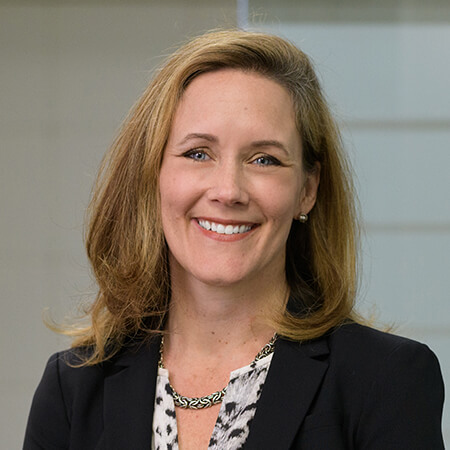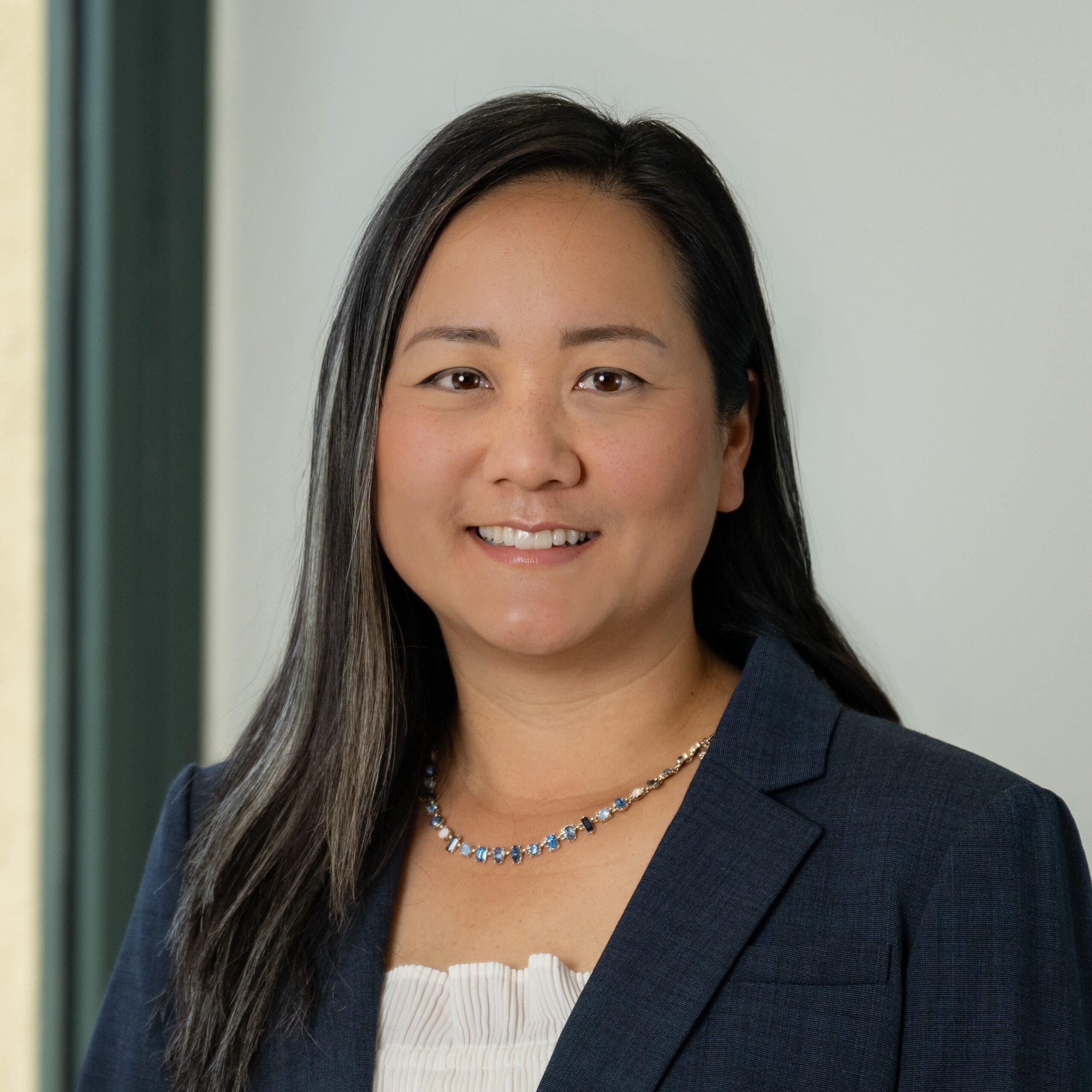The start of a new year often inspires reflections on the past, with renewed effort to apply any lessons we've learned to try to anticipate

Top 5 Benefits of Private Travel
March 22, 2021
Sara Craven, Chief Wealth Manager and Shareholder at Sand Hill Global Advisors, speaks with Sara Calitri, Chief Operating Officer, and David Goodman, Chief Revenue Officer, of Private Flight Advisors about the top 5 benefits of private jet travel.
These reasons include: Safety (@2:31) , Efficiency (@3:24), Flexibility (@4:11), Experience (@5:03) and Cost Benefit (@5:54).
The Private Flight Advisors team also provides details on the various types of options for private travel such as Aircraft Ownership, Jet Card, On-Demand Charter and Hybrid. For more information on how to schedule private travel, fill out the questionnaire by clicking here!
For many years, we’ve been speaking with our clients about the benefits of flying private…. either they are ready to start or they’ve been flying private for a while but feel they may not be aware of the different ways that they can fly private.
When considering the best way to travel, be it for pleasure or business, the primary consideration is typically the expense. While the cost is an important factor one should also consider the expense in other areas – such as time and convenience – in making their decision.
In this interview, we spoke with Sara Calitri and David Goodman of Private Flight Advisors to discuss the top 5 benefits of private jet travel, from efficiency to flexibility.
Below is a transcript of the video interview.
Sara Craven:
For many years, clients have been interested about the benefits of flying private. Either they’re ready to start, or they’ve been flying private for a while, but they feel they may not be aware of the different ways they can fly private. When considering the best ways to travel, be it for pleasure or business, the primary consideration is typically the expense. While the cost is an important factor, one should also consider the expense in other areas, such as time and convenience in making their decision. Today, I’m pleased to introduce Sara Calitri and David Goodman of Private Flight Advisors to discuss the top five benefits of private jet travel.
Sara Craven:
Sara Calitri is Chief Operating Officer at Private Flight Advisors. She has spent over 15 years managing corporate flight programs, including ad hoc, on-demand, charter, jet card, corporate shuttle, as well as a hybrid model program. Sara began her career traveling the world with professional athletes and entertainers, corporate executives, government officials, Royal families, and other high net-worth individuals. Sara brings best practices and rigorous attention to detail to every mission.
Sara Craven:
David Goodman is Chief Revenue Officer at Private Flight Advisors. David has been providing private aviation solutions and transportation logistics consultation since 2004. With clients ranging from executives to corporate aviation departments, David has been a trusted advisor by focusing on the unique needs of each and every client he serves. As one of the leading experts in private aviation and charter logistics, David is also involved with developing travel programs within the travel and tourism industry, including hotels, tourism boards, and destinations.
Sara Craven:
Private Flight Advisors is a comprehensive private jet charter and advisory firm focusing on safety, value, service, and security. Their mission is to deliver each client maximum value and unmatched service for each and every flight.
Sara Craven:
Sara and David, I’m delighted to speak with you today. For our audience curious about private jet travel, let’s address the benefits first. Here are the top five benefits of private travel.
Sara Calitri:
Thank you so much, Sara, for the introduction. It’s really a pleasure to be speaking with you today. So for reason number one people choose private travel is safety. Private jet operators work with third-party auditors to ensure the utmost safety of each operator and each aircraft. Furthermore, you’re going to know exactly who’s flying the plane, typically two pilots, and you can check into their hours on type. In today’s environment, given COVID, it’s really important to limit our exposure to other people. So with private flying, you can avoid all the busy terminals and busy airports. We use the smaller airport facilities called FPOS, and usually, you can drag your vehicle right up to the aircraft, to board without going through any buildings. And then when you disembark the aircraft on the other end, your ground transportation can be right there waiting for you on the tarmac.
David Goodman:
Thank you so much for having us here. We’re really appreciative of your time. For flying privately would be efficiency. The ability to check in 15 minutes prior to your scheduled departure and be escorted right onto the aircraft, versus an hour and a half prior check-in at a commercial terminal, will save you hours on both end. We obviously fly point to point, so you’re not making any stops or connections, which will maximize your time. We can also stop and pick members of your group up if they’re originating from a different location. We can bring everybody to the same destination together. We’re using regional airports, so we can often find an airport closer to where you’re starting from and finishing so that you’re not spending so much time traveling to and from the airports themselves.
Sara Calitri:
And reason number three is the overall flexibility. Most of the time you’re traveling to a meeting and you might have your meeting start a little bit earlier or finish a little bit early. You can call up your crew, up until the day of departure, and change your departure times. If your meeting’s running a little bit late, that’s fine, no need to rush out to the airport. You can call your crew and you can change it on the fly. Likewise, if you want to change who’s actually traveling with you, up until the day of travel, you can let the crew know that “we’ve picked up an extra passenger. We’d like them to fly.” Even if one of the people can’t make it anymore. Those types of changes can be easily made as you go.
Sara Calitri:
We’d even have people change their destination. They show up to the airport and something’s changed, maybe another meeting to your agenda, well, we can make those changes right up until the time of departure. So utmost flexibility in your travel schedule.
David Goodman:
Reason number four would be experience. It really does change the entire experience of your travel day. From the time that you arrive you’re greeted by a crew that has been trained to deal with VIP guests and they treat you as such. You’re flying out of private air terminals, where again, the staff is there to serve you and will make you feel that way. You’re able to use that time in flight, so either to wind down or to be productive using Wi-Fi or conduct business, without the distractions of people around you. We can arrange special catering, amenities, gifts for children, periodicals, flowers. It’s your plane and so it will feel that way. It’s your private, travel experience.
Sara Calitri:
And finally, we have reason number five, which is the cost-benefit. So we’re not here to tell you that flying privately is going to be the most economical option out there for you, but you’d be surprised. There are times where it’s quite competitive with commercial first class. If you have a group of eight or 10 people even, who are all traveling together, maybe on a ski trip or to a board meeting, and these are people that would typically fly commercial first class. Well, then it’s really worthwhile looking into private aviation, even from a cost-benefit perspective on that flight. You could be surprised that it’s right around the same price.
Sara Calitri:
And also, you might be saving a day or two on the road. Less time in hotels and only you can really put a value to what your time is worth. Time is money, as they say.
Sara Craven:
Absolutely. These are excellent points and clearly, there are many key advantages that we too at Sand Hill discuss with our clients. And Sara, I think that this last point is where people really stall out. They think that private jet travel is complicated or a real extravagance. But you’ve highlighted many benefits for personal and business travel that are very compelling. In working with your clients, how do you help them navigate the way that they fly private, from either jet ownership to chartered flights, and decide what’s best both logistically and economically?
Sara Calitri:
Certainly, there are a number of factors to look into when you dig deeper into which program is well-suited for you. There’s an array of different charter programs out there, so it’s really your travel patterns. The amount of flying that you do, do, the type of flying, the range that you would require, international versus domestic. So really you would want somebody to do a study of your travel patterns and how you would see yourself using private flying to dig deeper into those programs and ensure that you’re following through with the right fit for you.
Sara Craven:
What are some scenarios in which you’ve had to guide your clients through a combination of these plans?
David Goodman:
Well, it really starts with outlining each type for them and looking at the pros and cons of each. With full aircraft ownership, which some people might choose to do, you’re owning your own asset and you obviously have ultimate flexibility in how you use that. But there are, of course, considerations that you would have to employ or somehow crew the aircraft and maintain it, as well. It’s an expensive way to fly privately, but really the ultimate way if you have the means and want to do so.
Sara Calitri:
And a step down from full aircraft ownership would be the fractional ownership route, where you’re buying a share, like a timeshare in a hotel, of this aircraft. We see fliers that usually fly about a hundred or so hours, at least, annually look into the fractional ownership option. You’re paying an annual membership and then you’re also paying as you go for what you use. So again, a hundred-plus hours, and that might be the right option for you.
David Goodman:
The other option would be a jet card. And a jet card is really like a debit card where the client prepays for a block of hours. And as they fly those hours, that’s subtracted from the card and then they can re-up. It’s usually for flyers that are using at least 50 hours a year. It’s popular for people that are doing a lot of one-way travel or going to secondary cities or locations where there are not a lot of aircraft already stationed. If you think about New York or Southern Florida, there are a lot of planes to be had, but that might not be the case in other parts of the country where it’s harder to get an aircraft to and from. So a jet card is popular for those people that are using a lot of plane time and a lot of one-way flying.
Sara Calitri:
And then finally we have the on-demand option. So you’re really not locking in any type of aircraft. You don’t have to prepay for any block of hours or membership. It’s a pay-as-you-go system. “I know I need to fly here and I have three people and I don’t need a big plane. Let me look into what options I have for that specific route.” So it’s much smaller commitment or no commitment, really, just it’s a nice way to enter the market.
Sara Calitri:
We see a lot of people that, like you said, when do you see the hybrid option? A lot of people will partner up on-demand charter with a jet card. So somebody who some of the time they might be flying for a week, in which case the jet card for a longer trip might make sense to them. You’re basically locking in a higher, hourly rate, but you’re not playing for any positioning time.
Sara Calitri:
And then for certain trips, you’re only going for two days, the aircraft will likely stay with you and so there is no positioning involved, in which case an on-demand cost structure would make more sense. So having somebody to guide you, “On this trip, we think you should use your jet card. It’s going to work out to cost you about this, at the end of the day. And on another trip, on this one, I think you should go with your on-demand option.”
Sara Craven:
How does one go about engaging the services of a charter or private travel advisor?
David Goodman:
The thing we’d recommend is the questionnaire, starting with that questionnaire and answering a few basic questions about your travel patterns. Are you traveling for business or personal or a combination thereof? How often do you travel? Are you on the road a lot or is it just a one-off occurrence for vacations and such? Are you going back and forth to the same locations, maybe a second office or a second home frequently? Or is it more scattered?
Sara Calitri:
Additional items to consider would be, how many people you typically travel with? Have you traveled privately before? Do you have specific preferences of an aircraft type or an aircraft layout? Do you travel with your pets? Have you any other additional special requirements that come into play when you’re planning your travel? Do you typically fly with any oversize luggage or equipment, skis? Anything out of the ordinary that’s important to share when you’re planning.
Sara Craven:
It’s clear you’d be a great resource for anyone hoping to navigate private jet travel as a lifestyle expense. And as you mentioned earlier, in this time of COVID, it’s an interesting way to think about your family’s safety and security.
Sara Craven:
Thank you so much again for joining us. And with that, thank you everyone for listening to another episode of the Sand Hill Interview Series.
David Goodman:
Thank you very much, Sara.
Sara Craven:
Thank you, Sara. Thank you, David.
*****
Disclosure: Sand Hill Global Advisors (“SHGA”) is a registered investment adviser with the Securities and Exchange Commission however, such registration does not imply a certain level of skill or training and no inference to the contrary should be made. SHGA may only transact business in the states where the firm is noticed filed or otherwise exempt. For disclosures, including additional information on credential designations of SHGA representatives please see our Form ADV Part 2A and 2B Disclosure Brochures, which can be obtained by clicking here. SHGA is separately owned and unaffiliated with any other firm or entities mentioned or featured in this video. This video presentation may discuss certain investment products and/or securities and is being provided for informational purposes only, and should not be considered, and is not, investment, financial planning, tax or legal advice; nor is it a recommendation to buy or sell any securities. Investing in securities involves varying degrees of risk, and there can be no assurance that any specific investment will be profitable or suitable for a particular client’s financial situation or risk tolerance. Past performance is not a guarantee of future returns. Individual performance results will vary. The opinions expressed in the video reflect SHGA’s views as of the date of the video. Such views are subject to change at any point without notice. You should not treat any opinion expressed by SHGA as a specific inducement to make a particular investment or follow a particular strategy, but only as an expression of general opinion. Nothing presented herein is or is intended to constitute investment advice, and no investment decision should be made based solely on any information provided on this video. There is a risk of loss from an investment in securities, including the risk of loss of principal. SHGA does not guarantee any specific outcome or profit. Any forward-looking statements or forecasts contained in the video are based on assumptions and actual results may vary from any such statements or forecasts. SHGA encourages you to consult with a professional financial advisor prior to making any investment decision.
Articles and Commentary
Information provided in written articles are for informational purposes only and should not be considered investment advice. There is a risk of loss from investments in securities, including the risk of loss of principal. The information contained herein reflects Sand Hill Global Advisors' (“SHGA”) views as of the date of publication. Such views are subject to change at any time without notice due to changes in market or economic conditions and may not necessarily come to pass. SHGA does not provide tax or legal advice. To the extent that any material herein concerns tax or legal matters, such information is not intended to be solely relied upon nor used for the purpose of making tax and/or legal decisions without first seeking independent advice from a tax and/or legal professional. SHGA has obtained the information provided herein from various third party sources believed to be reliable but such information is not guaranteed. Certain links in this site connect to other websites maintained by third parties over whom SHGA has no control. SHGA makes no representations as to the accuracy or any other aspect of information contained in other Web Sites. Any forward looking statements or forecasts are based on assumptions and actual results are expected to vary from any such statements or forecasts. No reliance should be placed on any such statements or forecasts when making any investment decision. SHGA is not responsible for the consequences of any decisions or actions taken as a result of information provided in this presentation and does not warrant or guarantee the accuracy or completeness of this information. No part of this material may be (i) copied, photocopied, or duplicated in any form, by any means, or (ii) redistributed without the prior written consent of SHGA.
Video Presentations
All video presentations discuss certain investment products and/or securities and are being provided for informational purposes only, and should not be considered, and is not, investment, financial planning, tax or legal advice; nor is it a recommendation to buy or sell any securities. Investing in securities involves varying degrees of risk, and there can be no assurance that any specific investment will be profitable or suitable for a particular client’s financial situation or risk tolerance. Past performance is not a guarantee of future returns. Individual performance results will vary. The opinions expressed in the video reflect Sand Hill Global Advisor’s (“SHGA”) or Brenda Vingiello’s (as applicable) views as of the date of the video. Such views are subject to change at any point without notice. Any comments, opinions, or recommendations made by any host or other guest not affiliated with SHGA in this video do not necessarily reflect the views of SHGA, and non-SHGA persons appearing in this video do not fall under the supervisory purview of SHGA. You should not treat any opinion expressed by SHGA or Ms. Vingiello as a specific inducement to make a particular investment or follow a particular strategy, but only as an expression of general opinion. Nothing presented herein is or is intended to constitute investment advice, and no investment decision should be made based solely on any information provided on this video. There is a risk of loss from an investment in securities, including the risk of loss of principal. Neither SHGA nor Ms. Vingiello guarantees any specific outcome or profit. Any forward-looking statements or forecasts contained in the video are based on assumptions and actual results may vary from any such statements or forecasts. SHGA or one of its employees may have a position in the securities discussed and may purchase or sell such securities from time to time. Some of the information in this video has been obtained from third party sources. While SHGA believes such third-party information is reliable, SHGA does not guarantee its accuracy, timeliness or completeness. SHGA encourages you to consult with a professional financial advisor prior to making any investment decision.
Other Posts By This Author
- – The Flexibility of the California Uniform Directed Trust Act
- – The Advantages of Exit Planning: Secure Your Legacy and Maximize Your Wealth
- – Include Personal and Financial Planning in the Sale of Your Business
- – Help the First Responders Help You
Related Posts
- – The First 10 Steps to Take When you Receive an Inheritance Lump Sum
- – Top 3 Must-Know Updates for Homeowners of Properties Valued at Over $5 Million
- – CNBC Halftime: Portfolio Moves | March 14, 2024
- – CNBC Squawk Box: Job Data Supports a Strong Consumer | January 5th, 2024
- – Investment Strategies for Tech Professionals in the Bay Area









